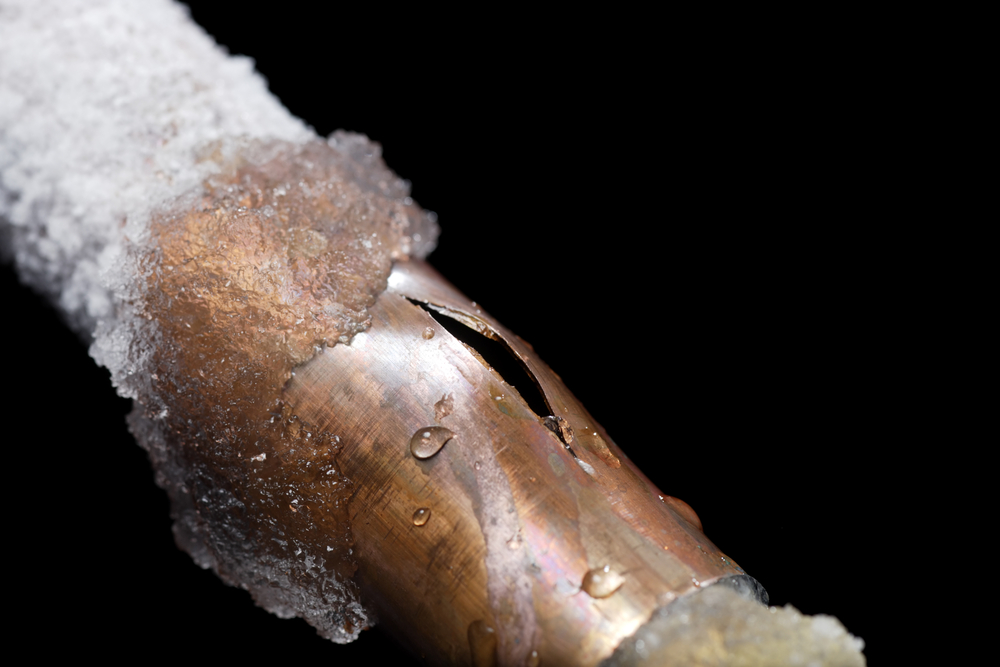Most people remember from grade-sc hool science class that water expands as it freezes. There is also a common misconception that this expanding ice physically causes a pipe to rupture. However, this expanding ice is often only one part of the equation, in that most pipes actually burst because of excessive water pressure created by the blocked or plugged pipe. As water freezes, it expands and creates a blockage within the pipe. This blockage pushes the remaining liquefied water in the pipe towards closed faucets and fixtures. This causes an immense amount of pressure to build up between the blockage and the closed fixture. Eventually, the increased pressure causes the pipe to burst; however, the failure is not at the location of the blockage, but somewhere between the blockage and a household fixture. This has a couple of different consequences for subrogation professionals.
hool science class that water expands as it freezes. There is also a common misconception that this expanding ice physically causes a pipe to rupture. However, this expanding ice is often only one part of the equation, in that most pipes actually burst because of excessive water pressure created by the blocked or plugged pipe. As water freezes, it expands and creates a blockage within the pipe. This blockage pushes the remaining liquefied water in the pipe towards closed faucets and fixtures. This causes an immense amount of pressure to build up between the blockage and the closed fixture. Eventually, the increased pressure causes the pipe to burst; however, the failure is not at the location of the blockage, but somewhere between the blockage and a household fixture. This has a couple of different consequences for subrogation professionals.
First, while the frozen water itself may be an act of nature, care should be taken to investigate what caused the water to freeze. Did a piece of HVAC equipment, such as a furnace or thermostat, fail? Was there recent repair work performed on the HVAC equipment that may have allowed it to fail? Did the residence run out of heating fuel that is supposed to be supplied under contract with a local provider? These are all examples where a third-party may be liable and where subrogation may be available.
Second, as explained above, the location of the failure does not immediately point an investigator to the location where heat may have been lost in the building (or the location where water in the pipe froze). This is especially true in commercial buildings, where piping may travel great distances to get water to bathrooms or offices. Heat could be lost in one area of the building, causing the water to freeze within the pipe, while the pipe bursts in another area of the building. Along with the investigative questions previously discussed, you may also want to ask whether another tenant was responsible for keeping its unit heated (and failed in that duty)?
Even seasoned subrogation professionals can overlook these key elements when investigating the recovery of a property damage claim due to a “frozen” pipe. Do not give these claims the cold shoulder, and you could receive a warm response to your subrogation inquiries.
If you should have any questions regarding this article or subrogation in general, please contact Aaron Plamann at aplamann@mwl-law.com.






